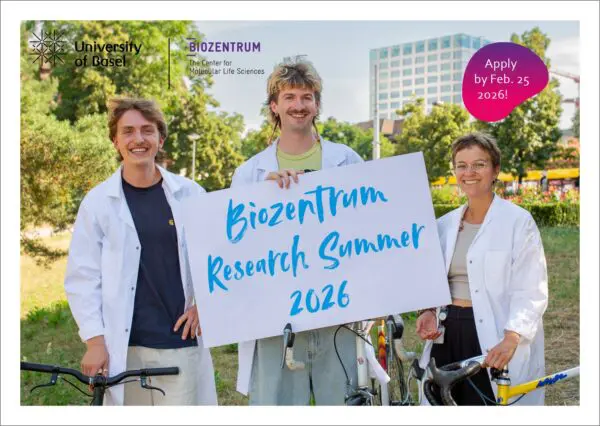
Basel, Switzerland
Biozentrum Research Summer
When:
13 July - 21 September 2026
Credits:
0 EC
Read more
Natural Sciences
When:
12 June - 14 June 2019
School:
University of Bern Winter and Summer Schools
Institution:
University of Bern
City:
Country:
Language:
English
Credits:
0 EC
Fee:
600 CHF

The Exoclimes Simulation Platform (ESP) is a vision to provide the scientific community with publicly-available computer codes designed to simulate the climates of exoplanets, including radiative transfer, chemistry and fluid dynamics. It is based on the belief that a healthy exoplanetary atmospheres community should compete to publish the best ideas, rather than be constrained by proprietary software. It is also based on the belief that science should be reproducible and accessible to everyone who is interested.
The ESP was created in 2011 by Kevin Heng and Simon Grimm, then at ETH Zurich and the University of Zurich, respectively, in Switzerland. They later moved to the Center for Space & Habitability (CSH) at the University of Bern from 2013 onwards to start the Exoplanets & Exoclimes Group (EEG), which continues to develop and support the ESP till this very day.
The main code developers of the ESP are the current and former students and postdocs of the EEG, but the long-term dream is for the exoplanetary atmospheres community to step in and collaborate with us. All of our codes are open source and hosted on Github (https://github.com/exoclime).
Prof. Dr. Kevin Heng (Bern): introduction and general overview Prof. Dr. João Mendonça (Copenhagen): the THOR general circulation model (GCM) Dr. Russell Deitrick (Bern): using THOR Dr. Matej Malik (Maryland): the HELIOS radiative transfer code Dr. Si
The ESP summer school is aimed at students and postdocs who are interested in exoplanet science. Participants of the ESP summer school are competitively selected; participation is capped at 30 persons. To apply, please send a one-page letter (use a maximum of 2 pages if you must) with the following information:
1. Introduce yourself, stating your past and current universities/institutions, area(s) of study and Ph.D/postdoc advisor(s).
2. Describe your current and/or future ideas for your thesis work and explain how the ESP will help you in your work.
3. List the names, affiliations and email addresses of two professors or senior researchers who will be able to serve as references for you. We may solicit feedback from these individuals if necessary.
We will vet and select participants based on achieving topical, geographic and gender diversity, as well as a balance between the experience levels of the participants. The letter should be in PDF format and sent directly to the CSH Director (kevin.heng 'at' csh.unibe.ch) by 31st December of each year.
The next, exciting phase for us in this open-source movement is to teach the community how to use
these codes, so that they may become both users and co-developers.
Fee
600 CHF, The registration fee for the inaugural ESP summer school is 600 Swiss francs (CHF), which includes hotel accommodation for 2 nights, all breakfasts (2), lunches (3) and dinners (2), and coffee/tea breaks. It does not include any alcoholic beverages/drinks. It does not include the travel expenses you will incur as you travel to and from Guarda Val. The actual cost for each participant exceeds the registration fee, which means we are effectively already subsidising every student/postdoc attending the ESP summer school.
When:
12 June - 14 June 2019
School:
University of Bern Winter and Summer Schools
Institution:
University of Bern
Language:
English
Credits:
0 EC

Basel, Switzerland
When:
13 July - 21 September 2026
Credits:
0 EC
Read more

Barcelona, Spain
When:
29 June - 03 July 2026
Credits:
2 EC
Read more

Glasgow, United Kingdom
When:
18 June - 02 August 2026
Credits:
12 EC
Read more